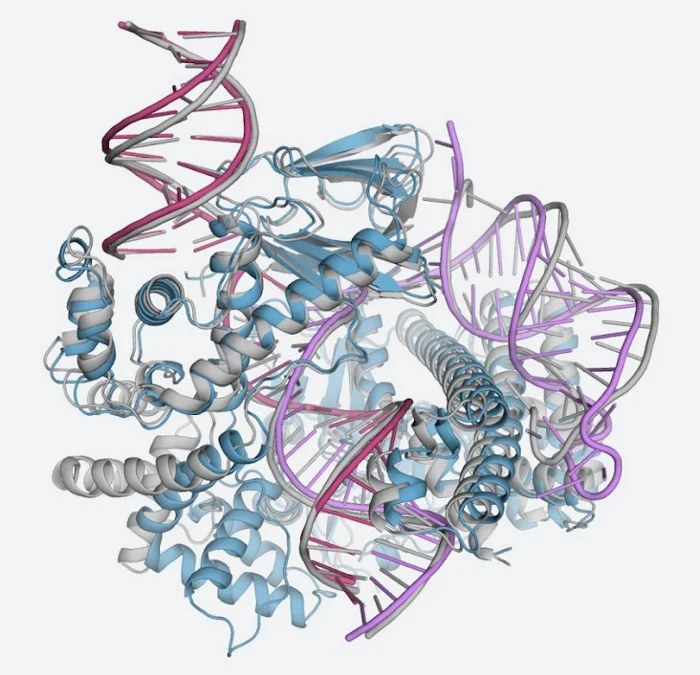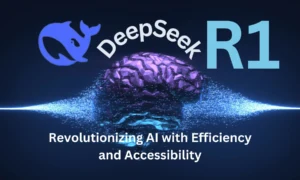Introduction
Definition of AI-Powered Scientific Discoveries
Artificial Intelligence (AI) encompasses a range of computational techniques that enable machines to perform tasks traditionally requiring human intelligence, such as learning, reasoning, problem-solving, and pattern recognition. In the context of scientific research, AI refers to the application of these techniques to analyze complex datasets, generate hypotheses, and simulate experiments across various disciplines, including biology, chemistry, physics, and environmental science.
By leveraging machine learning algorithms, natural language processing, and neural networks, AI systems can process vast amounts of data with speed and precision, uncovering patterns and insights that might remain hidden through traditional methods. This capability accelerates the discovery process, enhances the accuracy of predictions, and opens new avenues for exploration, thereby transforming the scientific landscape.
Importance of AI in Modern Science
The integration of AI into scientific research has ushered in a transformative era, profoundly influencing various disciplines. In fields like biology, AI algorithms analyze genomic data to identify genetic markers associated with diseases, facilitating the development of personalized medicine. In chemistry, AI models predict molecular interactions, expediting the discovery of new compounds with desired properties.
Environmental scientists employ AI to process climate data, leading to more accurate models of climate change and informing policy decisions. The ability of AI to process and analyze vast amounts of data with speed and precision has not only accelerated the pace of scientific discovery but also opened new avenues for exploration, making it an indispensable tool in modern science.
Historical Context
Evolution of AI in Scientific Research
The journey of Artificial Intelligence (AI) in scientific research has been marked by significant milestones, each contributing to the advancement of knowledge and technology. In the mid-20th century, the concept of AI began to take shape, with early computational models focusing on symbolic reasoning and problem-solving. Alan Turing’s seminal work, “Computing Machinery and Intelligence,” published in 1950, posed the question, “Can machines think?” and introduced the Turing Test as a criterion of intelligence.

The 1956 Dartmouth Conference, organized by John McCarthy, is often regarded as the birth of AI as a formal field of study. This conference brought together leading researchers who laid the groundwork for AI research, emphasizing the potential of machines to simulate aspects of human intelligence.
In the subsequent decades, AI research progressed through various phases, including the development of expert systems in the 1970s and 1980s, which utilized rule-based approaches to emulate human expertise in specific domains. The advent of machine learning in the late 20th century marked a paradigm shift, enabling systems to learn from data and improve their performance over time. This evolution paved the way for the sophisticated AI systems we utilize today in scientific research.
Milestones in AI-Driven Discoveries
AI has been instrumental in achieving significant breakthroughs across various scientific disciplines. One of the most notable advancements is in protein structure prediction. The development of AlphaFold, an AI system by DeepMind, has revolutionized our understanding of protein structures. AlphaFold’s ability to predict protein folding with remarkable accuracy has accelerated research in biology and medicine, facilitating drug discovery and the development of new therapies.
In the field of drug discovery, AI has transformed the traditional approach by enabling the analysis of vast chemical datasets to identify potential drug candidates. AI algorithms can predict molecular interactions, optimize compound properties, and streamline the drug development process, significantly reducing the time and cost associated with bringing new drugs to market.
These milestones underscore the profound impact of AI on scientific research, highlighting its role in accelerating discoveries, enhancing accuracy, and opening new avenues for exploration across various scientific fields.
Applications of AI in Scientific Discoveries
Drug Discovery and Development
Artificial Intelligence (AI) has revolutionized the pharmaceutical industry by enhancing the efficiency and accuracy of drug discovery and development processes. AI models predict molecular interactions, identify potential drug candidates, and streamline clinical trials, significantly reducing the time and cost associated with bringing new drugs to market.
In the early stages of drug discovery, AI algorithms analyze vast chemical datasets to identify compounds with desired biological activities. Machine learning models can predict the efficacy and toxicity of potential drug candidates, enabling researchers to prioritize compounds with the highest likelihood of success. This predictive capability allows for more informed decision-making and reduces the reliance on labor-intensive and time-consuming experimentation.
Once promising compounds are identified, AI facilitates the optimization of their chemical structures to enhance efficacy and minimize side effects. Generative models can design novel molecules with specific properties, expediting the development of new therapeutics. Additionally, AI models can predict key properties such as toxicity, bioactivity, and physicochemical characteristics of molecules, potentially bypassing simulated testing of drug candidates.
In clinical trials, AI analyzes patient data to identify suitable candidates, predict responses to treatments, and monitor adverse effects in real-time. This data-driven approach enhances the safety and efficacy of clinical trials, leading to more successful outcomes. The integration of AI in drug discovery and development represents a paradigm shift, offering the potential to accelerate the delivery of new medicines to patients.
Genomic Research
AI plays a pivotal role in genomic research by analyzing complex genomic data, leading to insights in personalized medicine and gene editing. The vast amount of data generated by genomic sequencing presents challenges in interpretation and application. AI algorithms process and analyze this data, identifying patterns and correlations that inform our understanding of genetic influences on health and disease.
In personalized medicine, AI models integrate genomic data with clinical information to predict individual responses to treatments, enabling tailored therapeutic strategies. This approach enhances treatment efficacy and minimizes adverse effects by considering the unique genetic makeup of each patient. AI’s capacity to evaluate gene sets could save researchers countless hours of labor-intensive work and further science’s goal of automating one of the most popular techniques for comprehending how genes interact to affect biology.
In gene editing, AI assists in designing precise interventions by predicting the outcomes of genetic modifications. This capability is crucial for developing therapies for genetic disorders and advancing research in functional genomics. AI models that integrate climate and soil data with genomic information can recommend site-specific crop varieties and management practices, enhancing agricultural productivity and sustainability.
Climate Modeling and Environmental Science
AI’s capacity to process and analyze large environmental datasets enhances climate predictions and conservation efforts. Traditional climate models often struggle with the complexity and scale of environmental data. AI addresses these challenges by identifying patterns and making predictions with greater accuracy and efficiency.
In climate modeling, AI algorithms analyze historical climate data to predict future climate scenarios, informing policy decisions and adaptation strategies. This predictive capability is essential for understanding the potential impacts of climate change and developing mitigation strategies. AI can simulate and predict extreme weather events, such as hurricanes and atmospheric rivers, with improved accuracy, providing valuable information for disaster preparedness and response.
In environmental science, AI analyzes data from various sources, including satellite imagery and sensor networks, to monitor ecosystems, track biodiversity, and assess environmental health. This information supports conservation efforts and sustainable resource management. AI algorithms might potentially be used to address comparative genomics investigations or information transfer from a model plant to a crop of interest, enhancing agricultural practices and food security.
Materials Science
AI accelerates the discovery of new materials with desired properties for various applications, including energy storage, electronics, and manufacturing. The traditional materials discovery process is often time-consuming and resource-intensive. AI streamlines this process by predicting material properties and identifying promising candidates for experimental validation.
Machine learning models analyze existing materials data to predict the properties of new materials, guiding experimental efforts and reducing the need for extensive trial and error. Generative AI models can generate new candidate chemicals, molecules, and materials, expanding both the discovery space and the creativity of researchers.
In energy storage, AI designs materials with optimal properties for batteries and supercapacitors, enhancing energy density, charge-discharge rates, and cycle stability. In electronics, AI identifies materials with desired electronic properties, facilitating the development of faster and more efficient devices. AI’s role in materials science represents a significant advancement, enabling the rapid development of materials tailored to specific applications and accelerating innovation across various industries.
Case Studies
AlphaFold by DeepMind
AlphaFold, developed by DeepMind, represents a groundbreaking advancement in computational biology, particularly in predicting protein structures. Proteins are fundamental to virtually all biological processes, and understanding their three-dimensional structures is crucial for comprehending their functions and interactions. Prior to AlphaFold, determining protein structures was a labor-intensive process, often requiring years of research.

AlphaFold utilizes advanced machine learning algorithms to predict protein folding with remarkable accuracy. By analyzing amino acid sequences, AlphaFold can forecast the three-dimensional structures of proteins, providing insights into their functional mechanisms. This capability has profound implications for drug design, as it enables researchers to identify potential drug targets and design molecules that can interact with specific proteins involved in diseases. For instance, AlphaFold has been instrumental in understanding the structure of proteins associated with various diseases, facilitating the development of targeted therapies.
The impact of AlphaFold extends beyond drug discovery; it has also enhanced our understanding of disease mechanisms. By elucidating the structures of disease-related proteins, researchers can gain insights into the molecular basis of diseases, paving the way for novel therapeutic approaches. The availability of AlphaFold’s predictions has accelerated research across various fields, including immunology, neurology, and oncology, by providing a comprehensive database of protein structures.
AI in Cancer Research
Artificial Intelligence (AI) has become an indispensable tool in cancer research, offering innovative solutions for early detection, diagnosis, and treatment. The complexity and heterogeneity of cancer present significant challenges, but AI’s ability to analyze large datasets has proven invaluable.
In medical imaging, AI algorithms are employed to analyze radiological images, such as CT scans and MRIs, to detect anomalies indicative of cancer. These AI systems can identify subtle patterns that may be overlooked by human clinicians, leading to earlier and more accurate diagnoses. For example, AI has demonstrated proficiency in detecting breast cancer in mammograms, often with higher accuracy than traditional methods.
Beyond imaging, AI plays a crucial role in analyzing genetic data to identify cancer biomarkers. By examining genomic sequences, AI can uncover mutations and alterations associated with various cancers, facilitating the development of personalized medicine approaches. This genomic analysis enables the identification of specific genetic profiles, allowing for treatments tailored to the individual characteristics of a patient’s cancer.
Furthermore, AI contributes to the discovery of novel anti-cancer drugs by predicting the interactions between potential drug compounds and cancer-related proteins. This predictive capability accelerates the drug development process, reducing the time and resources required to bring new therapies to clinical trials. AI models can simulate the effects of various compounds on cancer cells, identifying promising candidates for further investigation.
The integration of AI in cancer research exemplifies the transformative potential of technology in medicine. By enhancing diagnostic accuracy, enabling personalized treatment strategies, and expediting drug discovery, AI is playing a pivotal role in advancing cancer care and improving patient outcomes.
Challenges and Ethical Considerations
The integration of Artificial Intelligence (AI) into scientific research has ushered in transformative advancements across various disciplines. However, this integration also presents significant challenges and ethical considerations that must be addressed to ensure responsible and equitable application.
Data Privacy and Security
AI systems often require access to extensive datasets, including sensitive scientific and personal information. The handling of such data raises critical concerns regarding privacy and security. The scale and intransparency of AI data collection can lead to diminished control over personal information, increasing the risk of unauthorized access and misuse.
To mitigate these risks, it is imperative to implement robust data protection measures. This includes employing advanced encryption techniques, ensuring compliance with data protection regulations, and fostering transparency in data usage. Additionally, organizations must establish clear protocols for data access and sharing, ensuring that only authorized personnel can handle sensitive information.
Bias in AI Models
AI models are susceptible to biases inherent in their training data. If the data used to train these models is unbalanced or unrepresentative, the resulting AI systems may produce discriminatory outcomes, adversely affecting marginalized groups. For instance, biased data can lead to AI models that favor certain demographics over others, resulting in unfair treatment and perpetuating existing inequalities.
Addressing AI bias necessitates the use of diverse and representative datasets during the training phase. Implementing fairness-aware algorithms can help detect and correct biases, promoting equitable outcomes. Moreover, continuous monitoring and evaluation of AI systems are essential to identify and rectify biases that may emerge over time.
Transparency and Explainability
The complexity of AI models often renders them opaque, making it challenging to understand their decision-making processes. This lack of transparency can erode trust among stakeholders and hinder the adoption of AI technologies in critical areas such as healthcare and criminal justice.
To foster trust and accountability, it is crucial to develop AI models that are interpretable and transparent. Employing explainable AI (XAI) techniques can elucidate how models arrive at specific decisions, enabling stakeholders to comprehend and trust AI-driven outcomes. Additionally, establishing clear documentation and communication regarding AI methodologies and limitations can enhance transparency and facilitate informed decision-making.
In conclusion, while AI holds immense potential to advance scientific research, it is essential to address these challenges and ethical considerations proactively. By implementing stringent data privacy measures, mitigating biases, and promoting transparency, the scientific community can harness AI responsibly, ensuring that its benefits are realized equitably and ethically
Future Prospects
The convergence of Artificial Intelligence (AI) with various scientific domains holds transformative potential. This section explores the integration of AI with CRISPR technology, its role in space exploration, and its impact on personalized medicine.
Integration of AI and CRISPR Technology
The fusion of AI with CRISPR gene-editing tools is poised to revolutionize genetic engineering and therapy. The accuracy of genetic alterations is improved and more effective gene-editing tools are discovered more quickly because to AI’s ability to evaluate large genomic datasets.

By predicting the outcomes of specific gene edits, AI can guide researchers in designing interventions with higher accuracy and reduced off-target effects. This synergy has profound implications for treating genetic disorders, developing personalized therapies, and advancing agricultural biotechnology. With major ramifications for human health, the combination of AI with genome editing creates new opportunities in genetics, biology, and healthcare.
AI in Space Exploration
AI is set to play a pivotal role in the future of space exploration. Its applications range from autonomous navigation and decision-making in spacecraft to the analysis of astronomical data. AI algorithms can process complex datasets from telescopes and space missions, identifying patterns and anomalies that may indicate the presence of exoplanets or other cosmic phenomena. This capability enhances our understanding of the universe and accelerates the discovery of celestial bodies. For instance, AI has been instrumental in analyzing data from Mars missions, aiding in the identification of seasonal variations in the planet’s atmosphere and surface conditions.
Personalized Medicine
AI’s ability to analyze individual genetic profiles is transforming personalized medicine. By examining a patient’s genomic data, AI can predict responses to specific treatments, enabling the development of tailored therapeutic strategies. This approach enhances treatment efficacy and minimizes adverse effects, as interventions are customized to the patient’s unique genetic makeup. AI integration into CRISPR diagnostics introduces significant advantages in addressing many of these challenges. AI enhances the accuracy, speed, and scalability of CRISPR systems by expediting data analysis and optimizing target recognition.
Conclusion
AI has profoundly impacted scientific research, accelerating discoveries and enhancing precision across various fields. Its integration with technologies like CRISPR has opened new avenues for genetic engineering and therapy. In space exploration, AI’s analytical capabilities have facilitated the identification of exoplanets and the study of cosmic phenomena. Furthermore, AI’s role in personalized medicine has led to more effective and individualized treatment approaches.
As AI continues to advance, it is imperative to develop and implement ethical guidelines to govern its application in scientific research. This includes ensuring data privacy, mitigating biases, and promoting transparency in AI models. Ongoing research and collaboration among scientists, ethicists, and policymakers are essential to harness AI’s full potential responsibly, ensuring that its benefits are realized equitably and ethically.








2 Comments